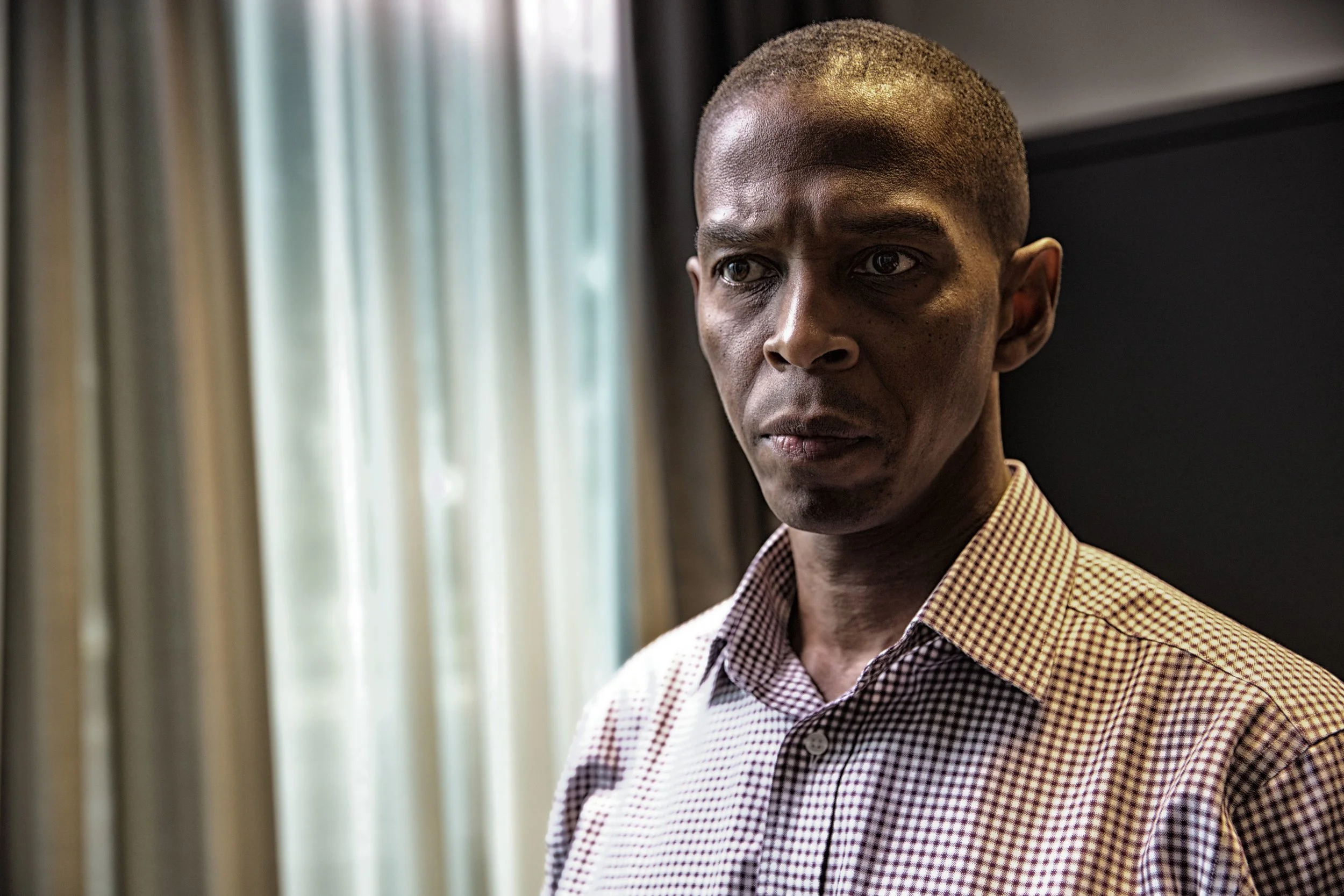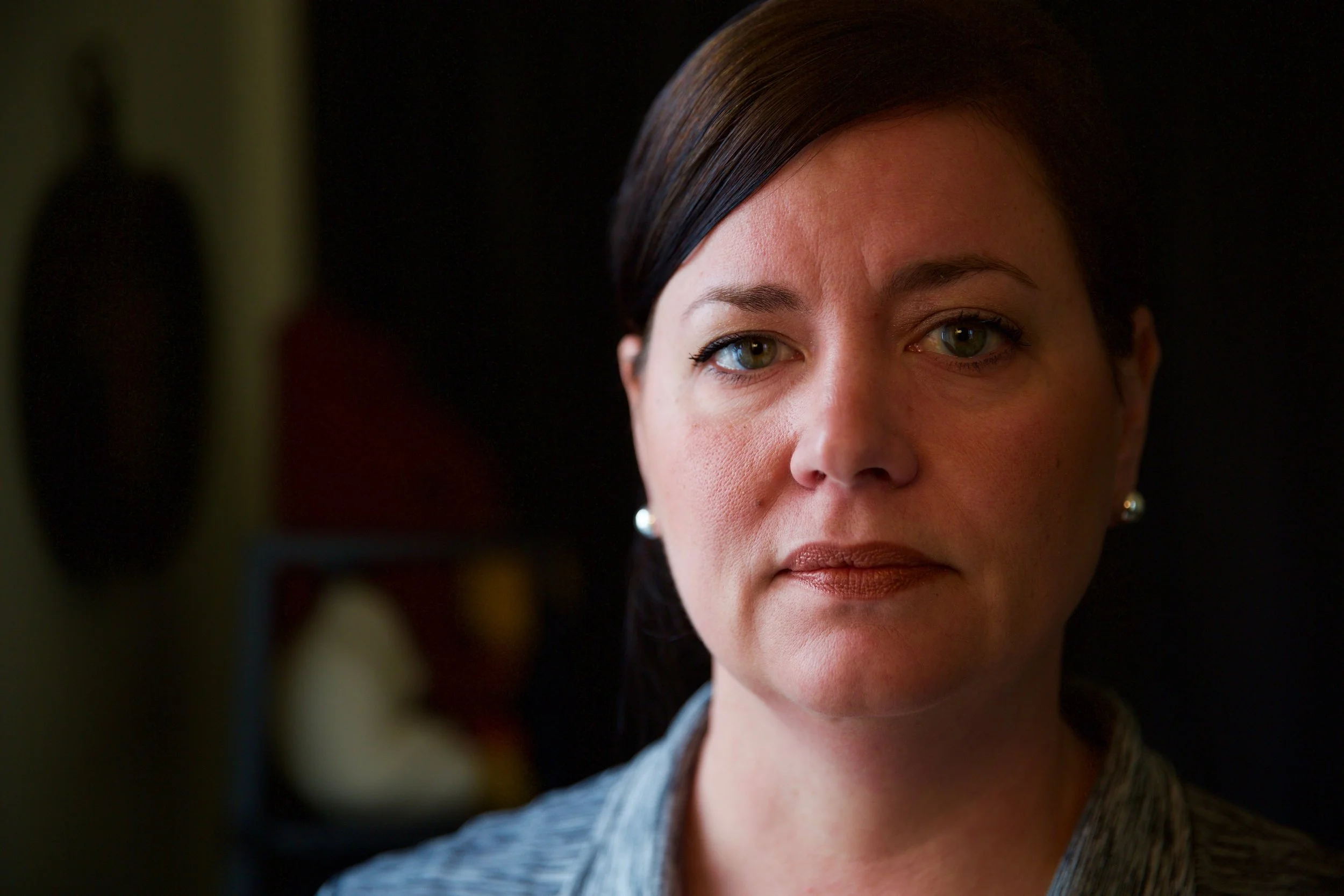Richmond Justice
STORIES + PORTRAITS
Randy and Karen | May 27, 2016
Reverend Randy Myers is President of GraceInside, a nonprofit organization that provides chaplain services to Virginia's state prisons and juvenile detention centers. Randy previously worked for the Department of Corrections for 16 years as a substance abuse counselor, supervisor, and trainer. Karen Powell works for GraceInside as a full-time chaplain. Randy and Karen are both connected to the Virginia Correctional Center for Women in profound ways. Randy’s parents worked at VCCW, and he later served as a counselor there. Karen is the current chaplain at VCCW, and has worked there for 14 years — about half of her career ministering to incarcerated women and juveniles.
Randy: I am a child of the Virginia Correctional Center for Women. My dad started out as an overnight boiler operator at the State Industrial Farm for Women, as VCCW was originally named, though most people just called it “the women’s farm.” My mom became a prison matron and worked on the farm with the inmates, tending crops, handling livestock, and collecting trash. She and my dad lived on the prison grounds in a tiny house with no kitchen, just a hot plate for fixing food, and they were dirt poor. But they were lucky. It wasn’t easy to find work. Eventually, my dad worked his way up to serve as a captain, and my mom studied accounting and earned a job managing all of the inmate accounts. This week, they’re honoring my mom as the longest-serving employee of VCCW, with 55 years dedicated to working there.
But here’s the really cool thing: One day my mom is heading home from work and stops in at the prison nursery to see some of the babies of the inmates. She sees this little girl with big brown eyes and says to the inmate running the ward, “This is the most beautiful baby I’ve ever seen.” The inmate overseeing the nursery says, “Well, you could have her.” She learned that the baby’s mother came from a family with a lot of abuse and didn’t want to see her child grow up in the same environment, but she wasn’t going to be released any time soon. As far as the baby’s mother could see, the girl would grow up incarcerated; so she decided to offer her up for adoption. She became my little sister. Today, she’s a doctor, a general practitioner serving other families.
Growing up, I always said that I was going to get far away, go to Hollywood, become a movie star. I told my parents: “I’ll never work in a prison!” Well, God has a great sense of humor.
I enrolled at VCU as an art student, but was called to the ministry and ultimately earned a graduate degree in divinity. I discovered pretty quickly that I wasn't suited to traditional ministry, so I started going to job fairs and looking for jobs of all sorts. I’d go up to a booth with representatives from, say, Phillip Morris, and they’d tell me, “Well, Mr. Myers, that’s an interesting degree you have there. But we don’t think we need that at Phillip Morris.” At one of these fairs, I saw a table at the back of the room labeled “Virginia Department of Corrections.” I reluctantly strolled by and saw a brochure about prison counseling, something I had never heard about from my parents. I applied to be a counselor and started working at VCCW in 1990. Right away, I discovered that working with the women there felt more like ministry than anything I had done in a church.
Karen: I moved to Virginia from North Carolina in 1986, and started counseling at VCCW. I studied under Marjorie Bailey, who was the first woman in Virginia to be ordained as a Baptist minister. She was an amazing woman to tutor under.
At that time, VCCW was the only prison for women in the state, and the inmate population there and across the country was exploding. The overall rate of incarceration rose dramatically during the 1980s, but the rate for women jumped especially high. VCCW brought trailers onto the grounds after running out of space in their buildings.
“Would you rather have formerly incarcerated people living among you who are angry, or people who have had a spiritual awakening?”
Yet back then, there was actually more time to work with people than there is today. We did not have an official agreement with the Department of Corrections, so we didn’t have to file reports, secure passes for movement within a facility, or ensure that inmates signed up for programs in advance. It was common for me to spend most of a day working with women and juveniles, doing lots of pastoral care. Today, movement within Virginia prisons is much more controlled, and things are busier—in part due to the addition of more programs for those who are incarcerated, so many of these changes are good. But with the greater control over movement comes a much more restrictive environment in which we can provide pastoral care.
Randy: As in so many lines of work, we spend much more time today on administration and record keeping.
Karen: One reason for this is that a lot more outside organizations are involved in offering services like therapeutic care.
Randy: Harold Clarke, the Director of the Virginia Department of Corrections, has done a lot on that front. He has really worked to change the culture from one of punishment to one of dialogue. That’s a very positive thing. But like Karen says, often we just don’t have the time to do real ministry, real pastoral care, especially with female offenders.
Karen: And the women feel that gap, so I try to make sure, every day I’m at the prison, to really connect with someone, to really engage with someone, one-on-one. The word "pastor" comes from the Latin word for "shepherd." Through pastoral care, we strive to be shepherds to the incarcerated men and women we counsel.
Randy: As an organization, our concentration has long been on the inside. But reentry is so important, and we’re getting involved in that area while bringing the spiritual element to life on the outside. We want faith mentors to meet released male and female offenders at the prison gates, take them to get clothes, to job interviews, to substance abuse group meetings, to medical appointments.
Karen: We’re also working on restorative justice, which is profoundly important. I counsel an offender who has been incarcerated for 30 years. When she was sentenced, she thought she’d get out in 15 years; her lawyer had told her that she would likely be released on parole after serving only half of her sentence. But she’s a lifer.
Two years ago, she went through a very dark time. She had been denied parole. She told me that she had followed the advice of her attorney and tried to trust in God to bring her through. But, she said, “It’s not working. I have done everything the state has asked me to do, and I continue to be punished. The crime is held against me, even though I can never change what I did.”
She had taken a life, and we talked about how that changed the lives of so many people—clearly her and the victim, but also the victim’s family, her family, and so many others. Recently, she lost a friend on the outside whose life was taken by violence, and she began to understand the anger that builds up inside those who lose loved ones to the actions of others. When she went before the parole board most recently, she came with a letter explaining her journey to develop compassion. And the board seemed impressed.
We have to know the stories of these folks, especially the long-timers, who really aren’t the same people they were at 17 when they did the things that keep them behind bars today. We try to help them redeem themselves, to find value and purpose in the lives they’ve led. These people need a chance to show that they’ve reformed. And if there are opportunities for those affected by crime to come to the table and talk about the impact of these actions, then we can work on restorative justice. Then we can talk about how we can all benefit from bringing these people back into society.
Randy: So few people realize that at least 90% of those who are incarcerated will come home. Would you rather have formerly incarcerated people living among you who are angry, or people who have had a spiritual awakening? If we really want to improve neighborhoods and communities, prison chaplains must play an important role in changing minds and hearts, finding the value in people, and redeeming them through faith and justice.
— interviewed May 1, 2016
















